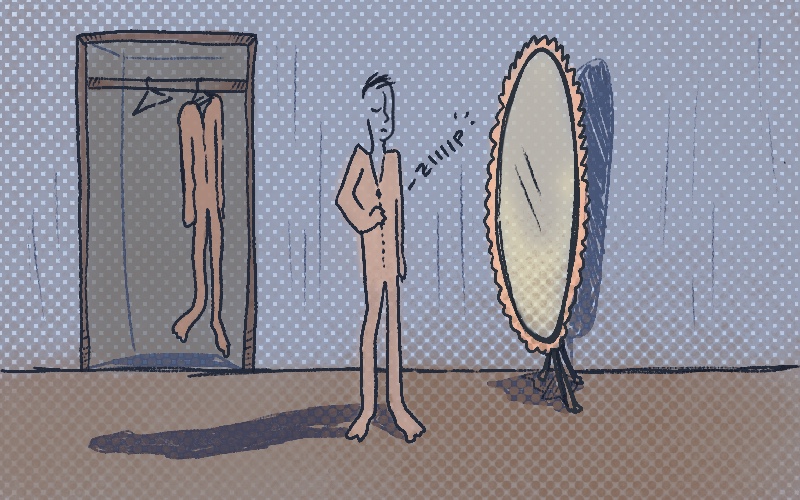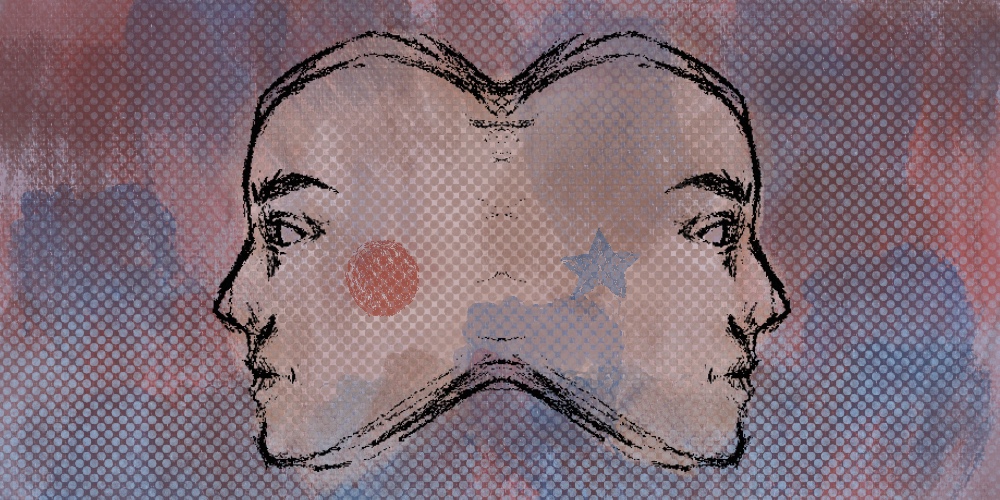Two corgis. One squirrel. Three turkeys. And many more presumably educated, ostensibly left-leaning young people.
I pass these creatures on my first day back in Cambridge, on a riverside run that used to be routine. After a two month hiatus from the brick university buildings and green lawns that are within walking distance from my apartment, I am jarred into recognizing the movement and number of living things that occupy these streets. Momentarily unfamiliar, instantaneously refreshing.
I have just returned from an extended visit to my hometown, where my runs were studies in agriculture and meditation. My Brooks shoes hit the pavement, surrounded by rows of apple trees on both sides, a sky close enough to touch, and soft hills that cupped the valley. I used to joke to acquaintances unfamiliar with the topography of Washington State, and who assume that all its 71,362 square miles are covered in constant, cloudy gloom, that I’m from the “dry side.” On this dry side, I told them, there are more cows than people.
This dry town, specifically, is five square miles. In this space, my once-removed American upbringing began. By once-removed, I mean that while I was technically a citizen, I never felt quite American. I was born in Kyoto to a Japanese mother and American father and lived in the Kansai region for the first six years of my life. Kyoto, the former capital of Japan, contains the most traditional relics of Japanese culture. I was unaware of the other half of my ancestral roots that carried another tradition, that of the first settlers in what would be the embryo of the U.S., Jamestown. My American ancestors were among the pilgrims to the U.S. that settled this colony. They then migrated north in ensuing generations, living in Massachusetts until my grandfather moved to the Pacific Northwest. There, my father was raised, and there, I found myself at age six.
You might assume that patriotism is genetically encoded in me, given my family history. Yet, moving to this country only speaking Japanese and raised mostly as Japanese, that encoding had never reached expression; I didn’t even know what American patriotism meant. More than that, there was not much in the American people around me with which I could identify. Many were kind; plenty weren’t. But above all, most were gun-wielding conservatives who rejoiced during hunting season and wore Carhartt jackets to school, who married their high school sweethearts and raised generations of family in the same town. In any given election season, signs lining the highway reminded who to vote for: Bush-Cheney, McCain-Palin, Romney-Paul, Trump-Pence.
The foreignness of this experience in my early years gave way to the foreignness of American patriotism. I associated patriotism with the values expressed in my hometown, which are not less than my own in and of themselves but simply not at all like my own. From the moment I stepped onto American soil, this dissonance led me to reject this form of Americana. Had I moved to a more diverse, liberal-minded area of the U.S., perhaps I would identify more strongly as American today, and maybe the events at the Capitol earlier this month would have held a different meaning to me.
Many people were shocked by the insurrection. Many have called it an attack on our democracy. Many felt deep grief over the idea that this country is no longer what it used to be, or even more terrifyingly, has never been what they merely thought it was — that this country has always contained the powerful antagonisms manifested in this month’s events. How could they not have noticed this simmering aggression?
Many Americans felt that way. Yet as I watched the scene unfold through the screen of my iPhone, I could not help but feel . . . very little. In terms of the absurdity of the scene itself — a giant sausage fest of armed, white, vindictive rioters swarming toward, around, onto, and into a sacred political building — of course, I mentally screamed, “This is INSANE!” I even uttered this aloud as I saw photos of police officers aiming guns toward intruders, and the “WE WILL NOT BACK DOWN” graffiti covering Nancy Pelosi’s office folder. But not until someone else expressed how this event made our country feel third-world, or that our democracy was under attack, did I begin to view it that way. In the rawest and most primal form of my own reaction to the event’s significance, I simply did not have one.
This lack of feeling was bizarre, yet I knew the exact reason for it. The values exhibited among the Americans who stormed the Capitol were eerily reminiscent of the “patriotism” I witnessed in my hometown, one that overlooks the pain many populations continue to endure in the U.S. for the sake of the country’s displays of success and power. This is the America that I first knew, and one that has never really been mine. You see, I carry an extreme privilege to be able to psychologically slip in and out of my American skin as it suits me.

Being racially ambiguous helps my case, and having dual citizenship with a viable country seals the deal. As someone whose outward appearance is difficult to categorize — “Are you South American?” “I would’ve guessed you’re part Native,” “Oh, you’re Asian?” — I can evade the mental toll of xenophobia that many of my full Asian American friends endure, such as the angry shouts of “GO BACK TO CHINA!” hurled at them in the early days of the coronavirus. On the other hand, when unsavory national events occur, I can zip off my American coat and self-talk myself into believing that I could always move to Japan and rebuild a life there. This shape-shifting has helped me cope with the division that has torn through our national veneer over the last four years, one that has existed underneath our mask of delusion since the days of slavery.
As Cyrus Samii stated on an episode of the FiveThirtyEight Politics podcast, “conservative white Christian Americans [are] mobilizing against the type of progress embodied by President Barack Obama’s time in office.” More fundamentally, this mobilization is driven by the caste system that Isabel Wilkerson describes in Caste: The Origins of our Discontents: “Caste is a disease, and none of us is immune . . . It is like cancer that goes into remission only to return when the immune system of the body politic is weakened.” We are living in that time when “the body politic is weakened.” And it’s tragically true that no American is immune to the caste system. Yet for someone like me, who never fully identified as American in the first place, a sense driven by my immiscibility with the very American ideals first demonstrated to me; who identifies as mid-caste (Asian) but appears dominant-caste (white); and with citizenship in another country, I have an escape — emotionally and literally. Because of this, America has never really been mine.
Still, during Biden’s inauguration, I was moved. When Kamala Harris was sworn in as the first woman, Black, and Asian American Vice President; when Amanda Gorman read her powerful, alliterative poetry to the nation; when Biden acknowledged that this land was NOT made for you and me, not truly, because
. . . the forces that divide us are deep and they are real . . . they are not new. Our history has been a constant struggle between the American ideal that we are all created equal and the harsh, ugly reality that racism, nativism, fear, and demonization have long torn us apart;
in those moments of the ceremony, I could gain a glimpse of what American patriotism really is. Perhaps it is the continuing struggle toward the ideals of life, liberty, and the pursuit of happiness that the founding fathers set for the country. I could see that, maybe, at some point, I will not feel the need to shed my American skin. Yet, amid all this effort, I cannot ignore that America’s prosperity was built on the backs of those we dehumanized. I cannot ignore that we slaughtered millions of Native Americans in order to establish a land of struggling “democracy.” I cannot help but consider the low hum of white nationalism underneath all the words and the politics, and the risk of believing that I would ever like to step fully into my American skin.
And so it remains standing: the question of American patriotism for those who, like me, have mixed identities; who, having come from the outside, see the irony in American ideals; who, despite all that has happened in the past hundreds of years of American history, continue toeing the line of hope.
•
A runner in Cambridge sees another coming toward her and politely lifts her mask, which had been hanging around her chin, back onto her nose. The other runner mirrors her action. This nod of masks is the new code for, “I see you and know you, fellow runner.”
Today, even a mask can symbolize ideological bifurcation. On a national level, this piece of cloth meant to protect one another has become an instigator of violence. Yet on an individual level, it can still be a mark of humanity: it is the runner’s nod, adapted to our current environment. •




